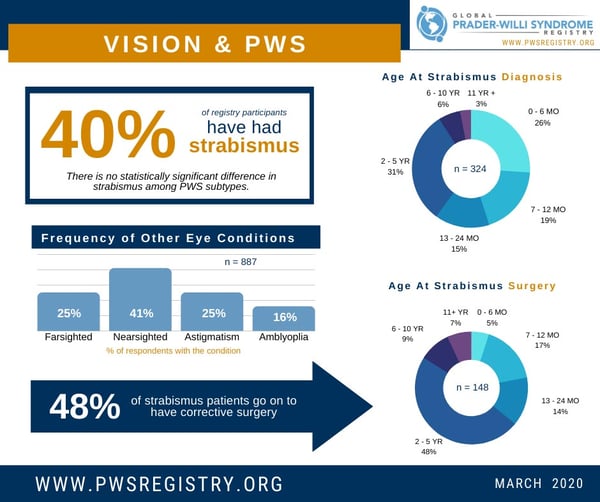Although many symptoms of PWS are difficult to treat, impaired vision is a place where corrective lenses and/or surgery can make huge improvements. Data from the Global PWS Registry shows that the most common vision issues in PWS are nearsightedness, and strabismus, which is when the eyes don’t look in the same direction at the same time (commonly known as ‘cross-eyed’). The frequency of nearsightedness in the Global PWS Registry (41%) is in line with the general population. However, the prevalence of strabismus (40%) is significantly higher than the general population (<5%). Farsightedness is also more prevalent in PWS Registry participants (25%) than in the general population (5-10%).

The impact of strabismus on vision is that when the eyes are not aligned, two different images are sent to the brain, which is difficult for the brain to interpret. Over time, the brain favors the image from the correctly aligned eye and ignores the image from the misaligned eye. This can lead to loss of depth perception, and if not treated, progress to amblyopia (‘lazy eye’) and loss of vision in the affected eye.
Strabismus can be treated by corrective surgery. Of participants in the Registry who report strabismus, almost half of them (48%) have had corrective surgery. The most common age window for strabismus surgery is 2-5 years old (48%). However, some participants had surgery as young as 6 months, and there is also a subset of participants that have had strabismus surgery during teenage years and early adulthood.
For more information on the Global PWS Registry, please visit pwsregistry.org or email the Registry here.








